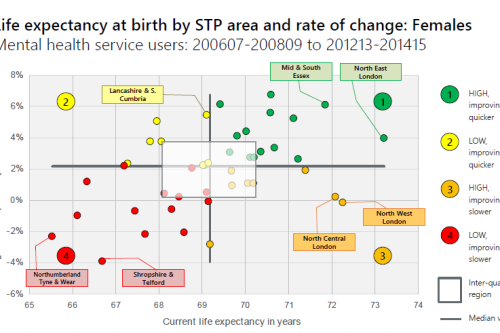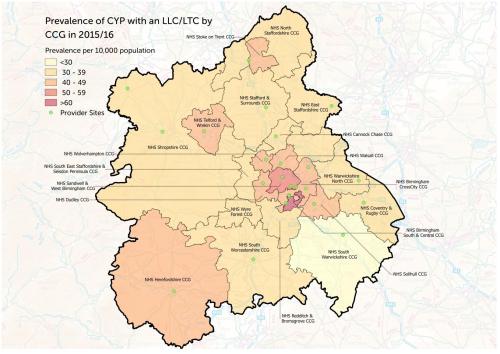Knowledge sharing
Knowledge sharing is vital for sharing good practice, enabling adoption and spread of innovations, and preventing people from making the same mista
Pre-mortem
The pre-mortem technique was developed by Klein (2007) using ‘prospective hindsight’ to identify risks at the outset of a project.

Tools & templates: Other points of view
Use Edward deBono’s ‘Six Thinking Hats’ or consider a wider point of view, to approach a problem or potential solution from different perspectives.
Evaluation of the Dudley New Care Models Programme
This is the final system-wide report from the evaluation.

Tools & templates: Breaking the rules
Generate new ideas to solve a problem – by identifying the underlying assumptions, unwritten rules and thinking that maintain the status quo.

Making the case for integrating physical and mental health services in England - National overview
This is a national overview report of our Making the case for integrating physical and mental health services reporting which took place in July 20

Tools & Templates: Five Whys
Keep asking ‘why’ to peel back the layers of your problem, until you identify a potential root cause.
Risk and Reward Sharing for NHS Integrated Care Systems
Risk and reward sharing is a simple and attractive concept, offering a commissioner the opportunity to co-opt and incentivise a provid

Palliative and End of Life Care Report for Children and Young People
Commissioned by NHS England, this report describes the the characteristics and levels of resource required by children and young people (CYP) (0-25

Dudley MCP Scenario Analysis
Dudley is one of fourteen vanguard sites nationally developing the Multispecialty Community Provider (MCP) care model.

Logic Models for Complex Programmes
Logic models have become a standard tool for planning and evaluation.

Changes in Dementia Incidence, Prevalence, Severity and Mortality
Dementia is a key priority for NHS England and is estimated to affect around 676,000 people in the country.
Making the Case for Integrating Mental and Physical Health Care - Full Report.
An analysis of the physical health of people who use mental health services: life expectancy, acute service use and the potential for
Using logic models in evaluation
Logic models are increasingly being used to support the design and evaluation of complex change in the NHS. This briefing provides a brief introduction to logic models and how they can be used to support evaluation of change.